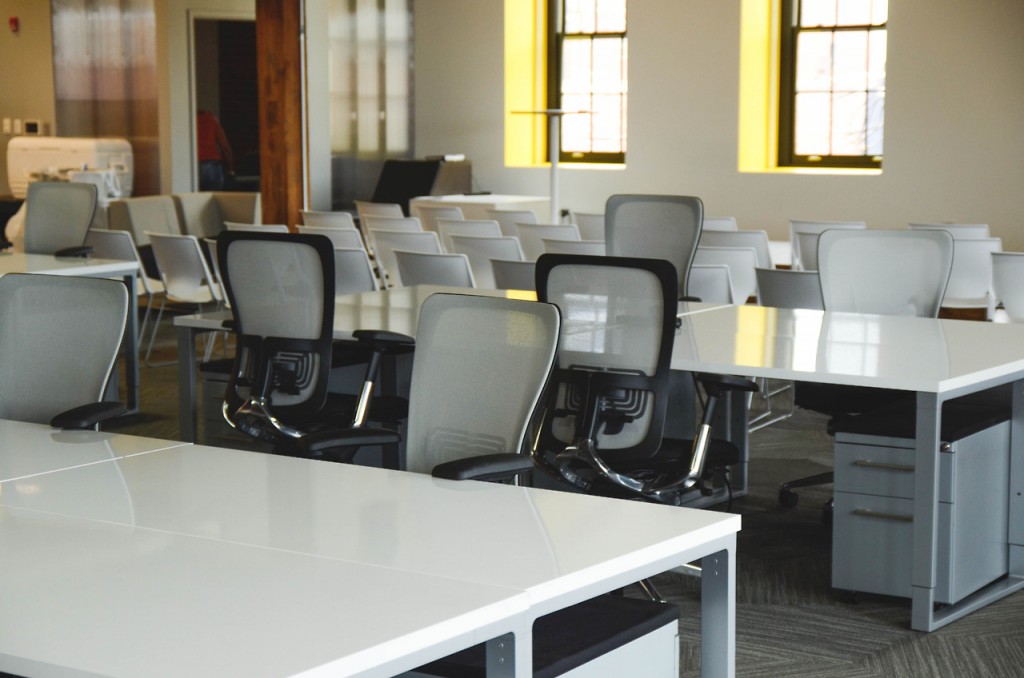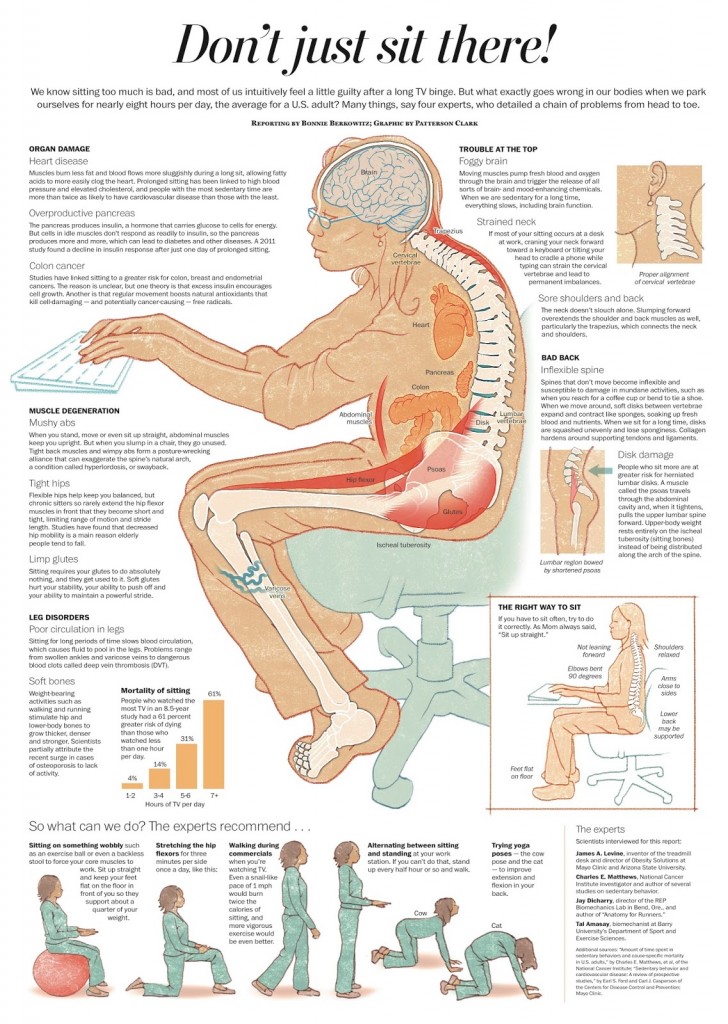
Among the worst habits, in terms of a healthy lifestyle, is sitting down for prolonged periods of time. It is inarguable that exercise is good for a number of reasons. But now researchers are taking the issue a step further by saying that in addition to including exercise in their daily routine, people need to also reduce the time they spend sitting. As with smoking and consuming too much sugar, sitting can have a number of harmful effects, from inability to maintain a positive mood and concentration, to muscle and organ degeneration.
Quite a few studies have been conducted to examine the correlation between sedentary lifestyle, defined by the Latin word sedere meaning “to sit,” and health problems. While sitting, the pose itself is argued to be unnatural. Too often, the spine is curved, depriving the small disks between the vertebrae from vital nutrients and blood. Overtime, that causes soreness and back problems. Perhaps more serious than back problems, however, prolonged sitting has been linked to conditions such as type 2 diabetes, cardiovascular disease and even cancer. While inactive, muscles do not respond to insulin easily. Even one day of prolonged sitting can be linked to a lower insulin response in the body.
Richard Rosenkranz, a researcher at Kansas State University, conducted a study with a group of more than 63,000 men. The study, published in the International Journal of Behavioral Nutrition and Physical Activity, confirmed the link between sitting and development of chronic health conditions. Men who spent four or more hours a day sitting were at significantly higher risks, compared to those who were in the stand-up part of the group. Those who sat for six hours and more were at particularly high risk of developing type 2 diabetes. Researchers explained that the study was based solely on the amount of time spent sitting; other lifestyle factors were taken into consideration when comparing groups of participants.
“It’s not just that people aren’t getting enough physical activity, but it’s that they’re also sitting too much. And on top of that, the more you sit, the less time you have for physical activity,” Rosenkranz commented.
Cancer is another unwanted side effect of sitting. Some scientists blame obesity, which can be directly related to sedentary behavior. Others say that the extra insulin that is not easily absorbed by the idle muscles encourages abnormal cell growth. Either way, numbers are overwhelming. Forbes recently reported that sedentary behaviors have been linked to a 24% increased risk of colon cancer, as well as a 32% higher risk of developing endometrial cancer.
One Australian study looked into sedentary lifestyle as it affected the lives of office workers at a call center. They wished to investigate how modern working conditions are affecting not only the health, but also the overall behavior of office workers. The findings were eye-opening. In an average office environment, about 77% of the work day is spent sitting. People who work sitting down tend to repeat that behavior on their days off. Additionally, when asked, the same workers report that they are much more active than they actually are, showing that they don’t realize how static their lifestyle truly is.
“It will always be difficult to engage employees in moderate-to-vigorous activity during the work day, but research has shown that light intensity activity is also beneficial and should be given increased recognition amongst employers. Getting employees moving is the most important thing”, the study states.
Some studies have even looked into mortality rates in relation to time spent sitting. The Journal of Medicine & Science in Sports & Exercise published a study that looked at more than 17,000 people and compared their lifestyles. Even when all other factors were considered and evened out, people who spent more time sitting suffered more health complications and early death, compared to the rest of the sample. In the sorted data, sitting time clearly emerged as a factor in the health changes, “independent of leisure time and physical activity,” the summary states.
The title of a recent Medscape article confirms that “Too Much Sitting Increases Mortality Risk Despite Exercise”.
Part 2 will offer some suggestions for how to avert these health issues, even when you have a job that requires a lot of desk or computer time.
Sources:
http://www.medicalnewstoday.com/articles/256663.php
http://www.forbes.com/sites/alicegwalton/2014/06/17/how-sitting-for-long-periods-might-contribute-to-certain-cancers/
http://www.medibank.com.au/Client/StaticPages/Gapcover/Download.aspx?filename=Stand_Up_Australia.pdf
http://link.springer.com/article/10.1007%2Fs12170-008-0054-8
http://www.usatoday.com/story/news/nation/2014/01/21/sitting-disease-heart-failure/4661431/
http://journals.lww.com/acsm-msse/Abstract/2009/05000/Sitting_Time_and_Mortality_from_All_Causes,.5.aspx





